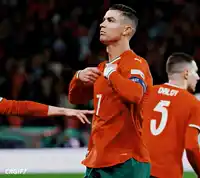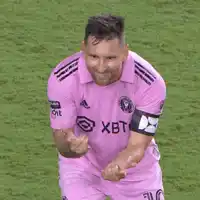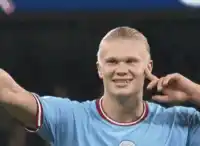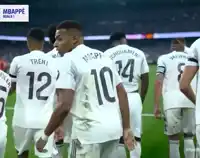Deep Archetype Analysis
As the Relentless Finisher, your game is engineered for impact. You demand the ball when it matters, convert halfchances, and set unforgiving standards in training. Confidence isn't a moodit's a habit built through preparation. You thrive in structures that feed runs into the box, isolate you 1v1, or exploit secondphase entries. Pressure clarifies your decisionmaking rather than clouding it.
Strengths
- Clutch finishing and aerial dominance
- Elite body preparation and longevity
- Worldclass offball movement and timing
- Unshakeable selfbelief under scrutiny
- Leader by examplesets the culture
Growth Areas
- Can overcentralize play in lowconfidence spells
- Requires systems that prioritize his runs
- Balancing star aura with collective rhythm
- Adapting role as athleticism declines
Ideal Roles & Systems
- CF/inside forward in 433 with aggressive fullbacks
- Twostriker systems (352) with creator partner
- Transitionoriented teams exploiting halfspaces
- Setpiece heavy sides leveraging aerial threat
Leadership & Team Dynamics
- Lead through standards: time, reps, recovery, diet
- Model clutch behavior in training scenarios
- Mentor finishers; celebrate creators who feed you
- Use ego as fuelnever as friction
HighImpact Training Priorities
- Finishing library: headers, volleys, firsttime, across body, cutbacks
- Movement drills: blindside runs, doublemoves, near/far post timing
- Power mechanics: plyometrics, core rotation, acceleration over 515m
- Pressure reps: penalties, 90'+ scenarios, crowd noise simulation
- Longevity stack: sleep, softtissue work, mobility, micronutrition
In-depth: The Relentless Finisher
This archetype centers on extreme game awareness, timing, and the psychology of delivering under pressure. Players who match this profile combine elite finishing technique with off-ball intelligence, physical preparation, and a relentless training ethic. Below you'll find tactical templates, a practical 30-day training plan, and resources to build the skillset.
30-Day High-Impact Training Plan (Finisher Focus)
A focused program combining technical finishing, explosive power, and pressure conditioning. Designed for coaches or motivated players to run through 4 weekly blocks.
- Week 1 � Technique & Range: Daily finishing drills (inside foot, outside foot, volleys), 30 minutes ball-reps, 3x per week small sided games focusing on service patterns.
- Week 2 � Movement & Timing: Blindside runs, near/far post timings, crossing combos; finish under fatigue; add plyometric sets 2x week.
- Week 3 � Power & Aerial: Jump mechanics, heading drills from varied delivery heights, resisted sprints for start speed.
- Week 4 � Pressure Simulation: Scenario reps (penalty shootouts, 90'+ finishing), crowd/noise simulation, recovery and load management protocols.
Tip: keep training logs (per-rep quality) and use a small camera to analyse finishing angles. Recovery (sleep, soft-tissue) is part of the plan � not optional.
433 Isolation Finisher
Fullbacks or wingers stretch width while the finisher focuses runs between center back and fullback lines. Prioritise quick cutbacks, late runs into the box, and vertical service from the halfspace.
3-5-2 Twin Striker
Two-striker systems create pockets of space; the finisher exploits second-phase entries and overloads in the box. Combine zonal shifting with targeted crosses and short corners.
Resources & Drills
- Finishing drill library: progressive drills from controlled reps ? pressured scenarios.
- Biomechanics: short articles on jump mechanics and hip rotation for power shots.
- Recovery resources: mobility flows and soft-tissue templates for longevity.
Frequently Asked Questions
A: Yes � systematic repetition, progressive overload for power, and pressure simulation are core. Work with a coach to personalise load and technique.
Q: How do I measure progress?A: Use per-session finishing accuracy, expected goals (xG) in small-sided games, sprint times and jump height as objective indicators.
Q: Is the archetype only for strikers?A: No � the archetype is about role and function. Wingers or midfielders with strong finishing and late-box arrival can match it.



